Dutch people like love to say certain phrases over and over again. If you arrive in the lowlands speaking very little Dutch, you are sure to quickly pick up on a few essential Dutch sentences. One of Dutch people’s favourite little phrases is “Dat kan niet“, essentially translating to “That can’t be done“. Another equally annoying version is “Dat mag niet” (“that may not be done”). Uses for both phrases are endless, and are often said as a conversation end-er. “I need my internet fixed today” -“Dat kan niet“. “I would like to have no mayo on my sandwich please” – “Dat kan niet”. “Can I pay with credit card?” “Dat mag niet”. You get the idea.
The beauty with the phrase is, you really can’t quite argue with it. The ever-stubborn “Dat kan niet” always seems to win, which is why it is cleverly used by many a Dutch customer-service un-service staff.
How many times a day are Dutch people simultaneously uttering those 3 highly irritating words?!? Any guesses? I’ll take a shot – 16 million – an average of one “Dat kan niet” per person, per day! (That should make up for the KPN guy saying it to me 12 times today!) Closely in the running for most used Dutch phrases is “Het is niet mogelijk” – which just another way of telling you that you certainly aren’t going to get want you. Het is niet mogelijk (it is not possible) will similarly pop-up at the most inopportune times. Just when you thought you were getting somewhere Het is niet mogelijk is sure to rear its ugly head.
[sdpl-ad3]
The other day I heard two Dutch 3-year-olds playing in the park. One was yelling “Dat kan niet!” and the other was yelling back “Dat kan wel!”. Their exchange went back and forth for quite some time, only to get louder and louder: DAT KAN NIET. DAT KAN WEL. DAT KAN NIET!! DAT KAN WEL!!” I stopped and joined in the fun, and boy it felt grand! As I walked away I had to wonder: If 3 year-olds are already busy feverishly practicing and perfecting their favourite phrases, what hope do we have?!?
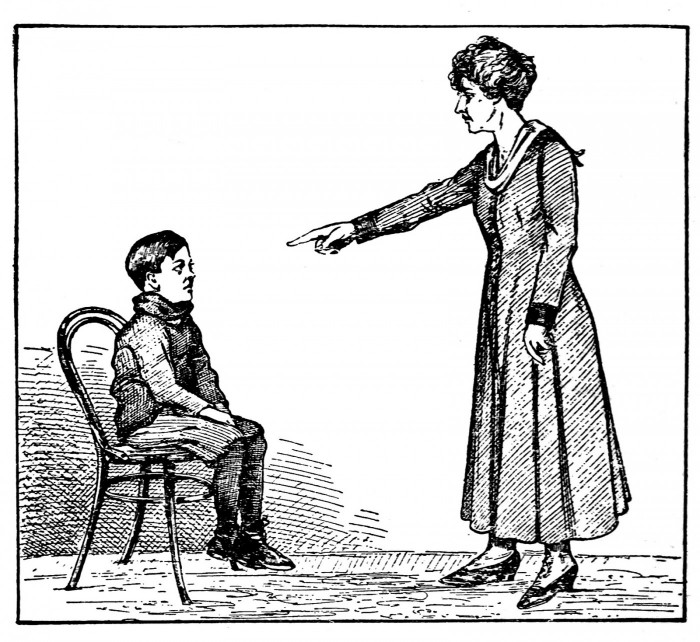
[sdpl-ad2]
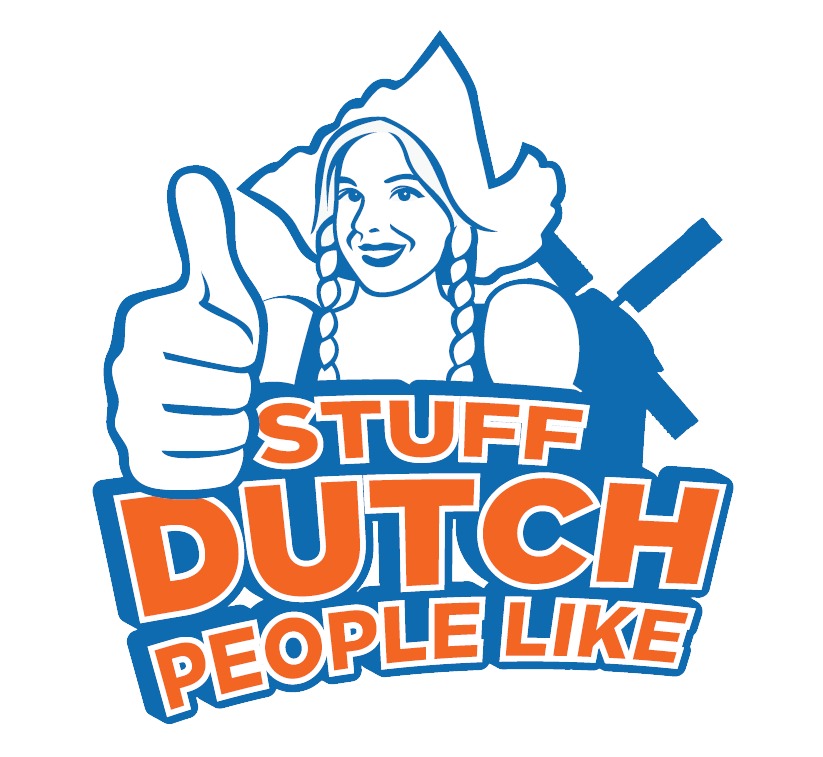



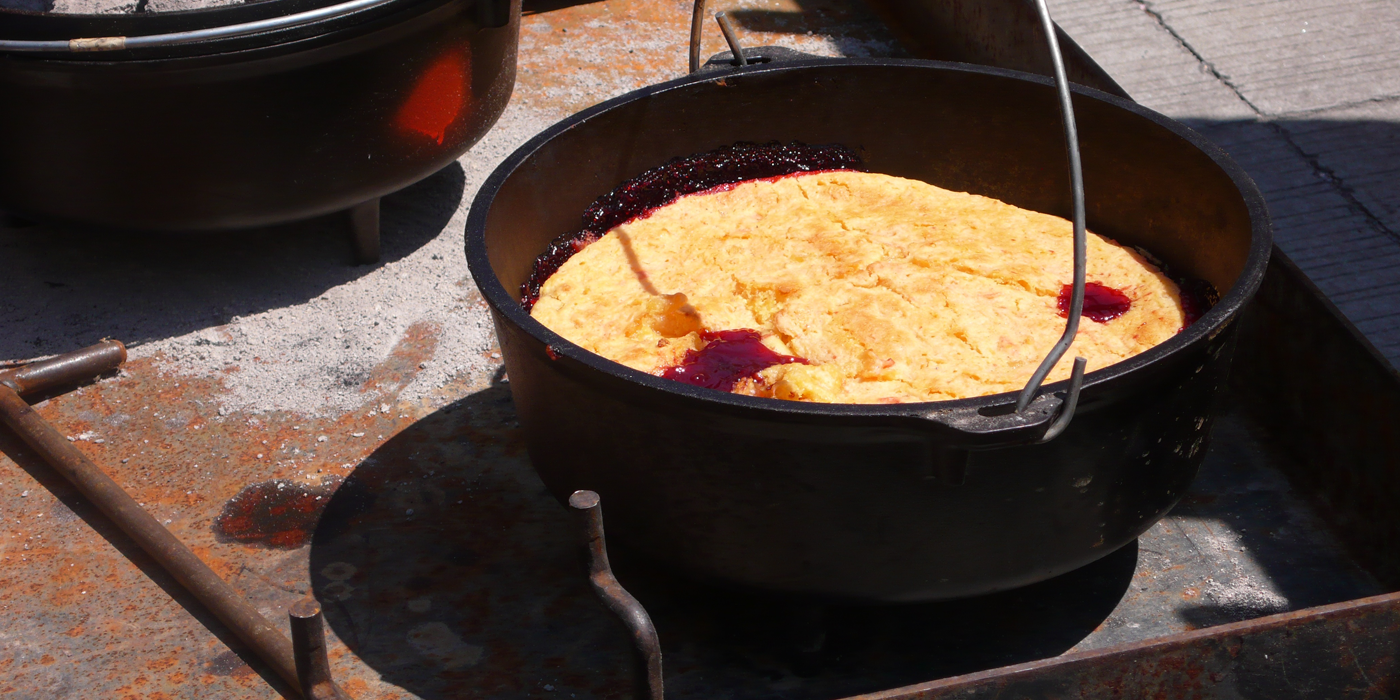


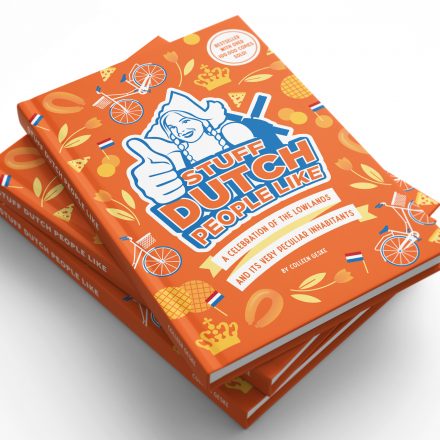
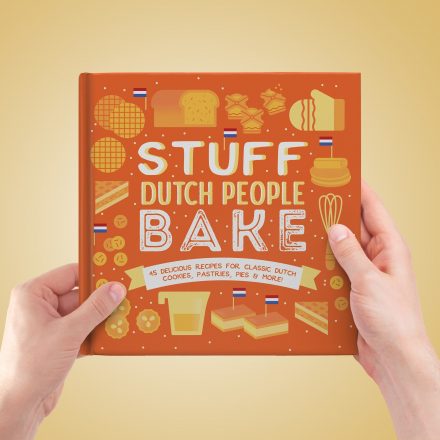

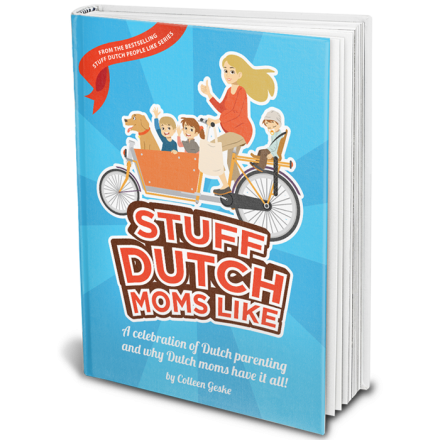
http://www.youtube.com/watch?v=7SSN0lyMJXQ
haha – brillant! I’ve added to the post – thanks Gido!
Hey jij, wat doe je daar? Je zusje is geen rammelaar?
(Hey you, what are you doint over there? Your little sister’s not a rattle!)
What an hilarious song!
There is a good answer to “dat kan niet”: “Kan niet ligt op het kerkhof en wil niet ligt er naast.”
This means: “what cannot be dome is laying on the graveyard and what you donot want is laying next to it.”
This doesn’t sound familiar to me at all! I always love reading the stuff Dutch people like, but I don’t recognize my culture in those sentences. I’m super confused reading that so many people think we say those sentences so often.
lol I love it!
i do recongnize it lol
What about “Dat mag je niet doen,” or the even worse, more rude more make me want to slap them across the face “dat mag je ECHT niet doen.” I had e neighbor tell me “dat mag je ECHT niet doen” in regards to having an argument with my ex. What is it with Dutch people trying to tell you how you may or may not live your private life in your own house?
Hmmm it’s more the neighbours culture than the dutch culture in action I fear…
My family is from the Netherlands (I’m 1st Generation American), so I thought it was only my family that had those absolutes about how one must or must not live. Now I find, it’s a dutch thing?
i vaguely remember having arguments at the age of 4 that went something like this:
“Dat mag niet!”
“‘t mag wel”
“Niet”
“Wel”
“NIET DUS!”
“WEL HOOR!”
and so on.
Ech wel!!
Nuuuut!!
It’s so true. I hear it all the time in the office.
Every fight between Dutch children since the dawn of time:
WELLUS
NIETUS
WELLUS
NIETUS
ad infinitum
I really don’t know what you are talking about. These phrases are just as much used in England or any other country. I think it’s the book with the same title you like to promote. But it’s just not true. If you like to learn about the Dutch people, buy the book ‘The dutch I presume?’.
“Can I pay by card please? –I’m afraid we only take cash, sorry.” A lot more words for the same thing.
yes but all those words suggest a workable solution ‘dat kan’ instead!
what kan I say… should you say “dat kan niet and dat mag niet”. Or should we say, you souldn’t have. ?
Well, sometimes it is misunderstood. In business-meetings, when a deadline is requested, and a Dutchman says ‘dat kan niet’, he probably means that it is genuinely not possible.
But very often indeed, ‘dat kan niet’ is actually ‘I don’t feel like doing that (right now)’.
Off topic:
I friggin’ love this blog. As a ‘Dutchy’ myself, I can relate to numerous (and humorous) things you mentioned here (double salted drop, *drools*).
Yet there are some I do not particularly relate to. For instance herring, yuk!
Apparently Dutch cabaret is quite unique. Maybe something to write about?
Anyway, keep up the good work, I’ll be following!
Cheers,
Bist
Hilarious post!
It reminded me of a legendary tv-commercial that plays with exactly this Dutch tendency (http://www.youtube.com/watch?v=NUXiqkAKr-0, or look for “Sonnema Berenburg Reclame – It Kin Net”). The older guy in the commercial is a Frysian and says “it kin net” (when asked by the studenty guys whether they can go on the ice). “It kin net” sounds to non-Frysian Dutch people as saying “het kan net” (i.e., it’s just possible) but it actually means “het kan niet”.
There you go :-).
Seriously, I would strongly advise to change the titel of this website. It is based on the ‘hollanders’ and not the ‘nederlanders’. I am a ‘Nederlander’ and do not recognise a lot of myself in it and am a bit insulted that we are being judged on treats which we do not have. The country is called The Netherlands and not Holland. I read now a couple of your articles, and No I do not go camping and No I do not (over) use the agenda (as a fact the first time I used it I threw it out within a couple of days) And No, I do not use that cannot be done etc etc. Thank you for understanding that the ‘holland’ mentality is not typical for the rest of The Netherlands.
As a Tukker (Twentenaar, from an area in the east of the NL, called Twente) living in Amsterdam for the past few years I can say that most of the articles on this site are just generalisations (in a good way) of the Dutch people. Of course there are always exceptions but to say that these things only count for Hollanders is a bit silly I think.
That said, the name of the website is refering to Dutch people, not singling out Hollanders or any other part of the Netherlands.
I love this reply… I am from Limburg and thats my identity… Holland is just a very specific part of the Netherlands;-)
We all know this but explaining it every single time to foreigners simply takes too much time. Actually that would be a good start for an article really.
Dutchies are very aware of their local cultures, the posters above proving the point and being annoyed by being classed as ‘Hollanders’, which in a general sense is synonym to ‘people from The Netherlands’ but within the Dutch ‘provincial’ – ‘westland’ dictomy means someone from Holland (or the ‘westland/the west’) along with all the local stereotypes and prejudices.
In general Dutchies cling a lot to their provincial identity. People are proud to say they are a ‘Zeeuw’, ‘Fries’ or ‘Twent’ etc. (especially to contrast themselves along the traditional south vs north (below and above the rivers) and provincial – westland borderlines). This tendency should not be overlooked. The regional awareness of Drenthe, Groningen and Friesland has been a major reason preventing the forming of a big northern province. Likewise Limburg has always viewed itself as different from The Netherlands as a whole, not unlike Friesland.
typical humorless dutch
i grew up between arnhem and nijmegen, and lived in both cities more then 6 years. and almost everything is recognizable to me or around me. its good that YOU have an opinion but don’t include the other 9 provinces in your opinion.. ( yess 9… holland is 2, you are 1 and with 9 it makes 12,,)
I agree. However it would be nice if the Dutch stopped calling me Engels when I am Brits.
Dutch migrants actually living in the UK often (if not always) show a better understanding of the difference between English and British, in my experience. Most Dutch Dutch, though, won’t have any clue about such distinction at all, I expect. Let alone even be remotely interested in it.
Since the previous prime minister Jan Peter Balkenende said: ‘Het mag niet zo zijn’ and ‘Het kan niet zo zijn dat’ (it should may not be that way and it can’t be that way) everywhere it was copied. Newspapers and televisionpeople all took it over. Hilarious
In fact it’s a christian politician thing since the 90’s, prime-minister Lubbers was the one who really popularised it: Het kán toch niet zo zijn, dat… Surely, it can not be that…
This is just the sentence that makes me quiver every time I hear it. Denial ain’t just a river in Egypt. Or in Dutch (just as meaningless as ‘het kan niet zo zijn dat’): “Ontkenning is niet alleen een rivier in Egypte.”
LOVE THIS! We arrived to Holland (to live) and it is taking me a while to adjust to this very thing. Dutchies not only say it often, they say it emphatically-as if there is only one possible way to do things. Given that these people are family and friends (my husband is Dutch) I worry about making a good impression and not being a “difficult” american.
But in shops (and banks)….I am constantly amazed by the people who “can’t” and “mustn”t” do things because they are too busy texting or talking to co-workers.
Being a Dutchie myself being married with a Czech wife and living in the Czech Republic I must confirm this. Even, where I’m using the phrase Dat kan niet really rarely, I do use it when I’m feeling that something can’t be made instantly by me (a kind of Dutch directness…). Something which is really getting on the nerves of my poor wife… Usually I just aim to say that I don’t know whether I’ll have time to do it (or, whether it matches my agenda…). Mostly I’m finding nevertheless some time to do it – and then my wife ask why for God’s sake I said “Dat kan niet”.
By the way, Czech people never use this phrase, they would rather try to convince that they will do everything – even when they know they can’t – and then just don’t manage it. So who is here the best one? A beloved word in Czech is, instead of “Dat kan niet”, directly zakázáno (forbidden), something Central European officials really love to pronounce in the face of some poor „subject“ (image the sounds: zá – kha – zzza – noo…).
To be honest, I love living in the Czech Republic (especially as I’m living outside from Prague, one of the most beautiful cities of Europe and at the same time one of the worst to live in). The people is fine, warm-hearted, in fact “gezellig” as far they are NO officials. Somehow nearly every Czech becoming a politician, official or such changes nearly immediately in an unfriendly stiff rigid person.
I live in Sweden. A few years ago someone put a sticker on a lamppost that I walk past every day when I go home, and it’s still there. The sticker says “DAT MAG NIET” with the flag of the Netherlands as background (I have of course never thought about the fact that it was the flag of the Netherlands). All these years I’ve looked at it and wondered what it is or what it means, thinking “I have to check that up when I get home”, forgetting about it two minutes later. Til today. And i swear, before I move out of this house, I will have put up a sticker below it saying “Dat kan wel!”
I will have put up a sticker below it saying “Dat kan wel!” Lol, just change it in “Dat mag wel” or “Het mag wel” 😉
haha you’re so spot on on this one! I hate the attitude of ‘kan niet’ especially when they haven’t even tried it themselves yet. Love the post, thank you. I hope I can be one of the dutch people who don’t turn out like this when i write my blog.
Even worse is HELAAS! While the dictionary defines it as unfortunate, you could easily substitue the words “tuff shit”. When you ask the grocery store checker if there is any more milk in the store/back – HELAAS! When you point out that someone has just scratched your car – HELAAS? When someone cuts you off and you point out that you are next – HELAAS!
Helaas pindakaas! Too bad, peanut butter.
This is too funny. I’ve lived in America for seventeen years now, and service is definitely better here in general. In work situations I began to notice rather quickly that I was the only one just coming out and saying that I couldn’t do such and such without an assistant or without more time or whatever.
There is what’s actually called a “can-do attitude”, meaning that if you ask someone in a work or service situation for something, they will bend over backwards to get it done, and no is never an option. If a clerk in a bookstore has to tell you they don’t have a certain book in stock, he will add immediately that he can call one of the other stores in the area to see if they have it and if I’d like them to keep it for me until I get over there.
The downside of the idea that the ‘can-do attitude’ is so great is that some people will also say yes and then just do whatever they want, rather than just coming out and saying they won’t do it.
Another equally annoying version is “Dat mag niet” (“that may not be done”)
“Dat mag niet” is translated into English as “That is not allowed”.
“That may not be done” means “dat zal misschien niet gedaan worden”. Perhaps you should work on your English a bit.
It seems the longer one lives outside of The Netherlands (no offense Tukkertje), the more one appreciates the sense of humor. Having lived in Canada for approx 3 yrs I used to hate the “Sorry about that” along with the smile that said “hey do I ever care”. Reading this made me realise I used to say “dat is helaas niet mogelijk” (“dat is niet mogelijk” being, that’s impossible and “helaas” unfortunately. Must admit I may have given people the same “like I care” smile…..
after 7 years in NL, i moved away. on my first visit back, it took a whole 15 mins before someone uttered that familiar phrase, at the AKO shop at schiphol. i can’t remember what was in question, but clearly, ‘dat kan niet.’ good to be back!
The jokes aren’t always about Germans, Belgians are being made fun of a lot too.
The main idea behind “Belgian jokes” is their lack of intelligence.
I’m a 100% Dutch male myself 6ft 2 etc.. I had a lot of fun reading all of these topics, it gave me some perspective 😉
the only topic i missed is the “gedoogde” consumption of soft drugs in our country.
This is actually the reason for a lot of Holidays to our country.
The Belgians (Flems) are even worse when it comes to “Dat Kan Niet”. It’s like their brains shut completely off at that point. It’s almost like they’re daring you to be an even bigger dick.
Nice, nice. 🙂 I see you observed the oddities of the Dutch culture very well. Some things, like Sinterklaas, are very difficult to explain for example.
To the Tukkers above, don’t take life too serious. Twente is still a part of The Netherlands, face it. The oddities described in this blog also count for your region.
When talking about services of for instance a bank or an insurance company ‘dit/dat kan niet’ often means something like: “Our software I use doesn’t offer me this function and I’m not paid/too lazy to think out of the box, I’m sorry for you.” On the other hand our public services (with the unfortunate exception of some municipalities) go very far in trying to remove as much bureaucratic nonsense as is reasonably achievable (given the confines of legislation). The strange result being that Dutch authorities often have a much stronger customer focus than Dutch privately owned businesses.
You must not have been to the IND then.
Reminds me of a something an English family friend us to say–he lived and ran a business in the Netherlands at the time: You guys should change your national anthem to “It’s impossible”, because that’s the answer you get to almost everything.
http://www.youtube.com/watch?v=dEZIy4B8D_c
The real popular (and annoying) one is: “Dat is niet de bedoeling”, literally “that is not intended”, but is actually a mild way of saying “you are not supposed to do that!” without spelling it out.
The one phrase i really cant stand is ‘regels zijn regels’, which in general also means that there is a better way to do things, but that person simply refuses to even consider them because the rules say ‘dat kan niet’. Even when the rules are clearly stupid and dont seem to work well with the situation at all, theyre preferred to just thinking outside the box a little bit and avoiding a lot of unnecessary fuss. Sometime ago there was this commercial on tv, which reminds me of so many of these situations ive had that me crazy with frustration:
http://www.youtube.com/watch?v=2Rw27vcTHRw
This ad is brilliant. The woman tells the man behind the counter that her daughter forgot her inflatable purple crocodile (“paarse krokodil”, which is visible behind the man). The man makes her fill out a form (also the reverse side) and then tells her that she can pick it up tomorrow morning at the recreation department. The woman exclaims “But he is standing there” (pointing to the crocodile). And the man replies in a sneery tone “Yes he is standing there”. This is a good example of Dutch “Jobsworth-type” bureaucracy. The phrase “regels zijn regels” (rules are rules) exemplifies this attitude. “Paarse krokodil” has entered the Dutch language to denote overzealous bureacracy.
Balkenende usually said “het kan niet zo zijn dat …” (“it can’t be like this”) after the thing he referred to had already happened. The only thing he could do was completely refuse to see the truth.
‘Dat kan niet’ and ‘Dat mag niet’ are utterances of denial of reality. And it’s everywhere in the Netherlands.
Or is it?
(“Dat kan niet’).
A lot of people also use ‘Dat kan niet’ as a phrase for saying that it’s just not right to do something (shameful or inappropriate). Example: Someone is saying something offensive about someone’s skin colour. Obviously it is VERY inappropriate to do so and people say ‘Dat kan ECHT niet!’ (That is so not right/appropriate!). Another example: Someone is wearing red pants which is obviously very unfashionable… ‘Die broek kan ECHT niet’! (Those pants is just not right!).
My American husband can’t stand my unintentional ‘Dat kan niet’-s 😛 It’s so normal to say here and I don’t even really know why.
I am making a huge effort not to say these things!
still no one with the “kerkhof” reply when someone says “dat kan niet” / “dat wil niet”.
“Kan niet ligt op het kerkhof, wil niet ligt er naast”
Roughly translated: Cannot lays on the cemetary, will not is next to him.
Btw red/yellow pants… only hockey players use them (kakkers)
Mijn moeder zei altijd “kan niet is dood, wil niet leeft nog”. Translated as ‘cannot is dead, will not is still alive’ 🙂
So I started reading this maybe 2 months before moving to Amsterdam, today (my second day) I encountered the “Dat kan nie” phrase, although it was inconviencing me, I really laughed at the accuracy and how predictable dutch can be
If you think that in Holland it is funny, then try Switserland, because there it is really serious.
Mowing the grass on Sunday, NOWAY, same for using the washing machine and hanging clothes out and I can go on for a while…. (after a few years we had enough…!)
You have to discover the “grey” in holland. They talk alot about black and white, but they do a lot of grey….
De Familie Magdat!!!
http://www.youtube.com/watch?v=d0DYIEBXi04
Alles kan! Theekan, koffiekan, waterkan melkkan…
A very important rule of thumb – if not the MOST important – for anyone considering the Netherlands as permanent residence: whatever you wish to achieve there will immediately (and resolutely) be swept away as ‘impossible’ – time and anon – typically before the first step on the path chosen has even the merest ghost of a chance. And in case any options appear to remain, these, too, will be cut down at once – usually in advance – as most decidedly out of the question.
This is usually presented in a tone that brooks no opposition and with the force of immovable dogma. I can report – true to heart – that the sheer inescapability of the latter has very real clout: so much so that I could fill reams of paper with personal experience.
Yes, in Holland there’s really only ONE way of doing things – no matter what. Given enough time, this, slowly but surely, will grind you down. And grow more and more depressing next: especially when you are a creative. For Dutch mentality, in this respect, is essentially tyrannical – nay, despotic; if in the subtlest of ways.
I put up with it for 40 years. But something in me snapped, one day, and I emigrated to the UK – totally fed up with those endless limitations imposed. That was 16 years ago.
The moral: if enforced mediocrity and conformity are your thing, if you don’t really mind widespread infantilism or jaw-dropping stupidity paraded as “directness”, if a petty, top-heavy bureaucracy meddling and interfering every step of the way is no objection, then you’ll probably be looking forward to a happy life amongst the Dutch. Otherwise don’t bother. Or opt for a country more beneficial to your mental health.
hahahaha, this is soooooo true! :))))
I must admit that I do sometimes say this, but I only say it when there is absolutely no way I can make something happen. If I say “dat kan niet”, it will really not be in my power.
“niks is gek en alles kan… alles mag als het maar leuk is! dat zegt oma Fladder dan”
https://www.youtube.com/watch?v=ojvlou0RyPY
talking about certain phrases, hoe cool is dat, hoe goed is dat. Seems to be the #1 used word on tv and in real life nowadays.
Why??
A grave omission…. “Het is gewoon zo” which loosely translates into “It just is that way”
The enormous gap between the collective persona of a free thinking, innovative, tolerant nation the Dutch have managed to sell ignorant foreigners is a far cry from the conformist, passive aggresive and infinite negative people they really are.
I left when I was seventeen and it keeps amazing me the glowing reputation the Dutch seem to elicit abroad.
This is as Dutch as it gets and no, not limited to just Holland as somebody dared to suggest.
dear david, a beautiful and intelligent comment. Based on evidence first hand as someone who left Netherlands in puberty… seems you stayed in that phase. Why would you want to offend every dutch person by making such absolute statements? You statement is actually proving only 1 thing… you have a very negative outlook on things, your experience is yours, not that of everyone and not everyone in the Netherlands has to be the way you describe. I dare suggest many things and your post is only a statement of how ignorant as a person you are, you just personally offended me not even knowing me, that says enough about your intellectual abilities and ability to be open minded about individuals…
I’m from the Netherlands, but personally never noticed this. Even if I think about it I don’t hear it that much. Keep in mind that Amsterdam is not representative for the whole country of The Netherlands. Great blogs though, they crack me up!
Hahaha the stubborn ones respond to not possible / not done: jawel hoor , kijk maar! ( sure i can, see!! And move on…..
I would absolutely add a post on an even more irritating sentence: “Dat is jouw probleem”, especially after THEY cause the problem or is THEIR job to solve it! 🙂
‘Dat kan niet’ is actually a symptom of a very widespread Dutch characteristic – they are passive-aggressive. The Dutch adore being in the position of stopping you from achieving your objective. If you are walking in the street, a Dutch person will walk into your path and stop DEAD; obliging you to walk around them and effectively giving them control over you. This attitude is part of a wider problem which is the Dutch inability to empathise. They will deny this but on analysis you realise that what they mean is that they sympathise. Empathy is a concept completely alien to most Dutch.
Interesting. The Greeks do this alot and like to be in your face too ! Ugh !
I was born and raised in the Netherlands and lived there for 27 years but I don’t recognize this at all. Are you hinting at the sometimes blunt service in the Netherlands? Or the bureaucracy? Or did this suddenly change in the 3 years I lived abroad?
This is hilariously accurate. My first few months in NL were filled with people from behind counters telling me “it is not possible” or “we cannot do that”. No alternatives, no explanations, no suggestions, no apologies whatsoever. It was definitely frustrating, and just came across as astonishingly rude! I even once made the mistake of demanding to see a manager, only to face the exact some “it can’t be done” response. It’s much less aggravating now that I realise it is just the way of the universe here in the low-lands.
I do find this one very strange. For a people who hate to be told what to do they love to tell others what they can and cannot do.
I have no problem with someone saying whether something is possible or not. Dat kan niet is just the Dutch way of saying it and there will be many different ways in different languages. However, what I never hear is ‘let’s try to find a solution to this problem’.
Het kan wel maar het mag niet.
Not allowed or forbidden refers to the law. E.g. parking in a spot reserved for the disabled will result in a 350 euro fine (there are also a lot of mentally disabled but those don’t have parking privileges).
The normal expresion for something that’s not recommendable is “Dat kun je niet maken” or “Als ik jou was zou ik dat niet doen”.
Many years ago, a Dutch comedian (Fons Janssen, I believe) brilliantly summarised the ‘kan niet’ rule. I’ll have to paraphrase the joke, actually, since I can’t remember the original quote. It runs somewhat like below, translated to English.
in Holland, everything is impossible, what still seems feasible even then out of the question in advance – and any option still to remain, theoretically, compulsory.
‘Nuff said…
Both my (American, non-Dutch speaking) daughter AND dog understand “Dat mag niet.’ perfectly. Especially the dog, as he usually does not hear that hard G sound of “mag”. Love using the phrase (hate hearing it).
I never felt like I was being told “dat mag niet” etc often. But living abroad myself as a Dutch person I find it frustrating when people are trying to tell me something cannot be done but fail to say so directly and instead just waste their time walking to the back of the office to “see if the manager who isn’t there, perhaps after all is there” and then come back saying he’s not there so it’s probably not possible.
One thing that that I’ve come to realise though is that over here rules are there, but sticking to them only makes you a better person. I always felt, without being told so, a lot of things can’t be done in the Netherlands. “Dat mag niet” is so obvious I start filling in the gaps by myself. “Dat mag waarschijnlijk niet”.
I am from the Netherlands and I agree with a lot of blogs on this website. About this one, I’m thinking it might be to do with the Dutch “directness” or clarity on things. If something is not possible, it simply cannot be done. I suppose a Dutch person might just say it like that. My stepdad is British and it’s considered to be impolite to say “no, it’s not possible” or “I don’t like that”. So, he might say “I don’t think that’s possible” which a Dutch person might reply to with “you think it’s not possible, so you are not sure”. It cannot be done basically tells one that it’s definitely not possible, there is no doubt left for anyone.
I understand it’s considered to be rude in many other cultures. I suppose when a Dutch person says “it’s not possible” it does not mean they don’t want to look for an alternative or a solution. Just because they don’t phrase it that way, does not mean they are not looking for it. I am sure if you then reply with “ok, so what do we do now?” they will continue thinking about solutions. A different example; these days I hear Dutch people around me here in England say: “if you don’t like something, just say it” which I’m sure in a lot of cultures, will never be said out loud. For a Dutch person, not saying that it cannot be done is more rude than saying it in their face. It’s just clear to a Dutch person.